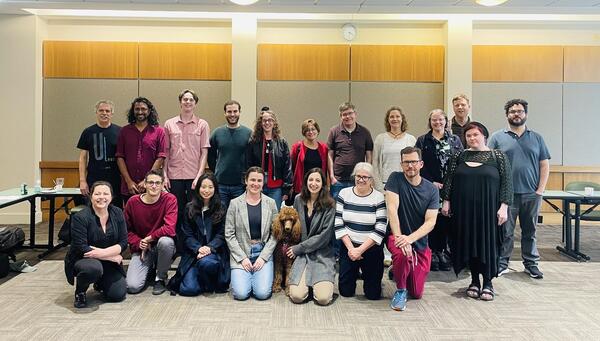Workshop: Violence, Animals, and Zoodemocracy
Start Date
Saturday May 4, 2024End Date
Sunday May 5, 2024Time
9:00 am - 3:00 pmLocation
On May 4, 2024, APPLE will host a Junior Scholar’s Workshop at Queen’s on Violence, Animals, and Zoodemocracy. The workshop is devoted to the recent work of APPLE postdoctoral fellow, Pablo Perez Castelló.
The first session, “Is Seeing Believing?”, draws on material from a book-in-progress chapter about an ongoing puzzle confronting social justice movements and political scientists/theorists, namely: Why does knowing about injustice not lead to political transformation? For example, in recent decades the extent of undercover footage, media coverage, and mainstream documentaries exposing what happens in slaughterhouses and factory farms has dramatically increased. Yet, to the consternation of animal advocates, this has not prompted demands for change. Pablo’s work challenges the idea that seeing is believing, arguing that this neglects the role that language plays in shaping our very subjectivities to hold dominion over animals, and hence humans’ ability to “see” violence against animals. It is belief that shapes what is seen, not the other way around.
The commentator for the first session is Dinesh Wadiwel, Associate Professor in Human Rights and Socio-legal Studies, University of Sydney.
The second session, “Centring Animals”, focuses on identifying the methodological, conceptual, and normative conditions for reducing the violence that humans inflict on animals and to co-author a more just future together. A number of scholars in various fields argue for the need to start from the voices of the oppressed, and recently this has included animal theorists insisting that thinking about animals and developing an account of interspecies justice should start from animals’ own points-of-view. While welcoming the call to “centre animals”, Pablo’s work argues that the use of this terminology is inconsistent, leading to incompatible visions of justice. His work addresses what it means to centre animals, why this matters, and provides a normative framework for centring animals in practice.
The commentator for the second session is Angie Pepper, Lecturer at the School for Arts, Humanities and Social Sciences, University of Roehampton.
The third session, “On Animal Self-Governance”, focuses on a separate paper that makes an intervention in the political turn in animal rights theory, arguing that domesticated animals can maintain the socio-political web (the “fabric”) that holds together the political communities they share with humans. Members of democratic communities generally do things that, together, sustain those democracies, whether cooperating, reciprocating, acting according to a sense of justice, helping others, and so on. These practices are framed by social norms and values that help to coordinate actions and resolve conflicts, and without which our political communities would fray. Pablo’s paper explores whether these activities, social norms, and values are also found in multispecies communities such as farmed animal sanctuaries. He does this by analyzing the ethnographic data he gathered at VINE sanctuary during two months of fieldwork.
The commentator for the third session is Stefan Dolgert, Professor in Political Science at Brock University.

[Photo credit (cow): We Animals Media -WAM32048]